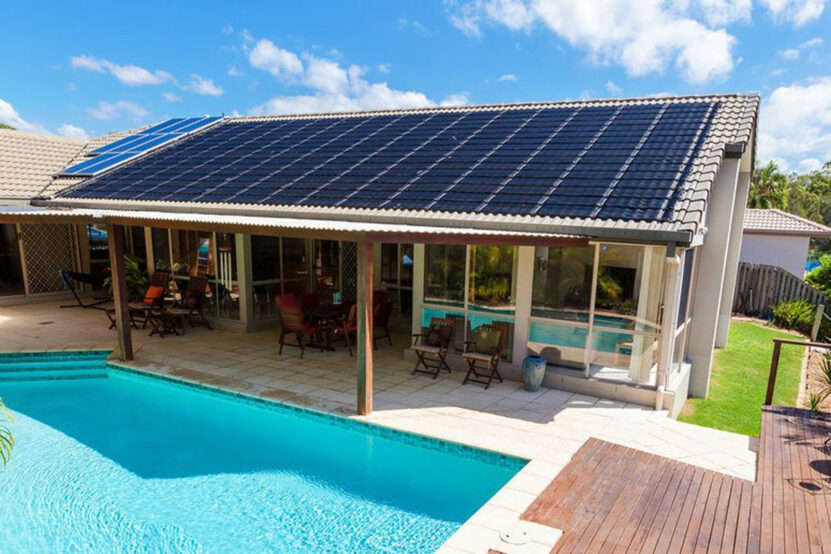Hey there, fellow eco-enthusiast! 🌍 If you’ve been keeping an eye on the latest trends in pool heating, you’ve probably noticed a surge in the popularity of solar pool heaters.
And it’s no surprise why! With the world moving towards more sustainable solutions, energy-efficient and eco-friendly heating is becoming a top priority for many homeowners.
Solar Pool Heating
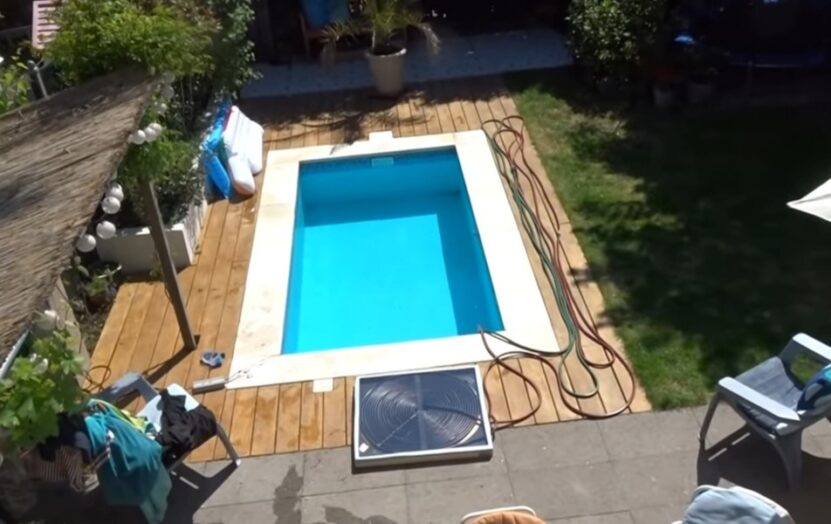
Solar pool heaters aren’t just a fad; they’re a brilliant way to harness renewable energy. At its core, the system is a renewable energy system designed to capture the sun’s rays and convert them into heat.
Sounds simple, right? Well, let’s break down the basic components:
- Solar collectors (panels): These are the heart of the system. They absorb sunlight and convert it into heat.
- Pump: This circulates water through the collectors, ensuring even heating.
- Filter: Before the water gets heated, it’s cleaned by the filter, removing any debris.
- Flow control valve: This handy component directs water through the collectors when there’s enough sunlight to heat the water.
- Pool water: Last but not least, the very thing we’re trying to heat!
Working Principles
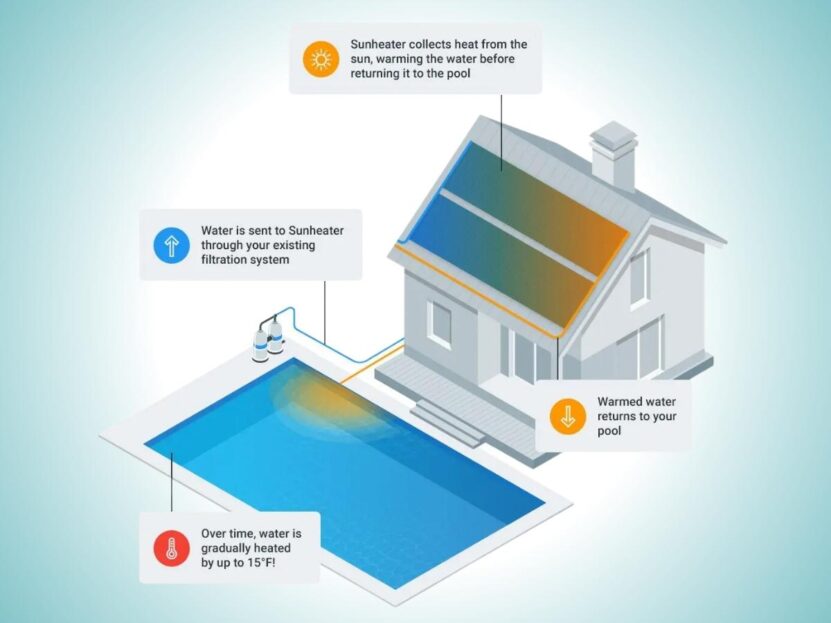
Let’s get into the nitty-gritty of how these systems work:
Solar collector operation
The panels absorb sunlight throughout the day. This absorbed sunlight is then transferred as heat to the water.
Circulation process
The pump plays a crucial role here. It pushes the water through the collectors. As the water circulates through the collectors, it gets heated and then returns to the pool.
Integration with existing pool equipment
The filter ensures that the water being heated is clean, which helps in maintaining water quality. The flow control valve plays a pivotal role in maintaining the desired water temperature. Modern solar pool heaters come equipped with sensors and thermostats for automated temperature control, ensuring your pool stays at the perfect temperature.
Different Types
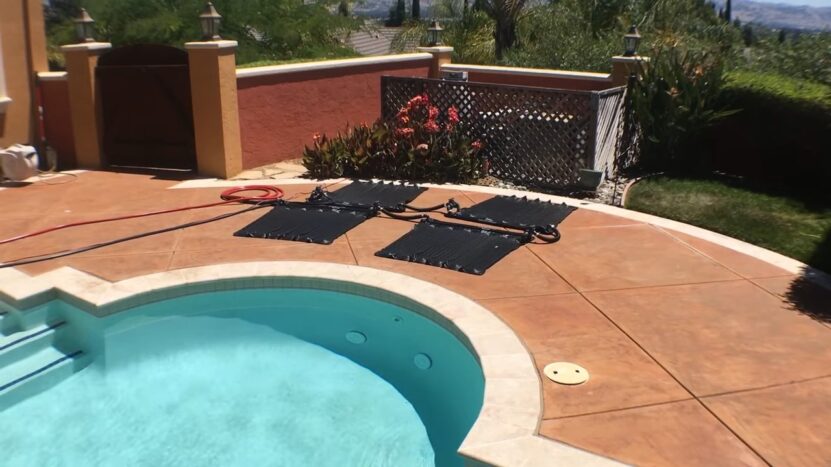
Solar pool heaters come in various shapes and sizes, each designed to cater to different needs. Here’s a quick overview:
Panel Arrangement
- Roof-mounted: These are the most common. They utilize the space on your roof, ensuring maximum sunlight exposure.
- Ground-mounted: Ideal for those with ample yard space. They can be positioned to capture the most sunlight.
Active vs. Passive Systems
- Active systems: These use pumps to circulate water through the system.
- Passive systems: Rely on natural circulation, where warm water rises and cold water sinks.
Direct vs. indirect circulation systems:
- Direct (or open loop) systems: Water is circulated directly through the collectors, getting heated in the process.
- Indirect (or closed loop) systems: A heat-transfer fluid is circulated through the collectors and a heat exchanger, where the water gets heated.
Installation and Setup
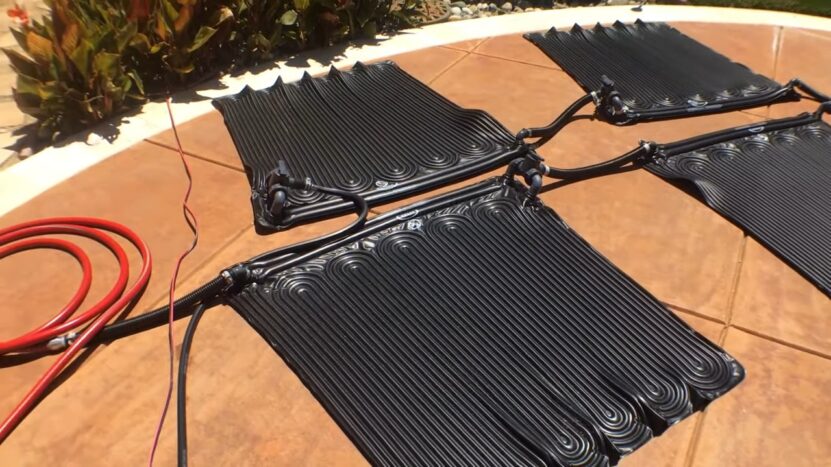
Setting up a solar pool heater requires careful planning and consideration
Pre-installation considerations
- Location and orientation: Ensure collectors are positioned to receive maximum sunlight throughout the day.
- Sizing the system: This is crucial. The system size should be based on your pool size and the climate of your location.
Installation process
- Mounting panels: Whether on the roof or the ground, ensure they are securely attached.
- Connecting panels: This involves linking the panels to the pump, filter, and pool.
- Setting up temperature control: Modern systems come with automated temperature control mechanisms for ease of use.
Benefits

Switching to solar pool heating isn’t just about warm water; it’s about the bigger picture:
Energy and cost savings
Solar pool heaters can drastically reduce your energy consumption, leading to significant savings in the long run. The initial investment pays off over time, offering a substantial return on investment.
Environmental advantages
- Lower carbon footprint: Solar pool heaters produce zero emissions.
- Reduced reliance on fossil fuels: By harnessing the sun’s energy, we reduce our dependence on non-renewable energy sources.
Maintenance and Troubleshooting
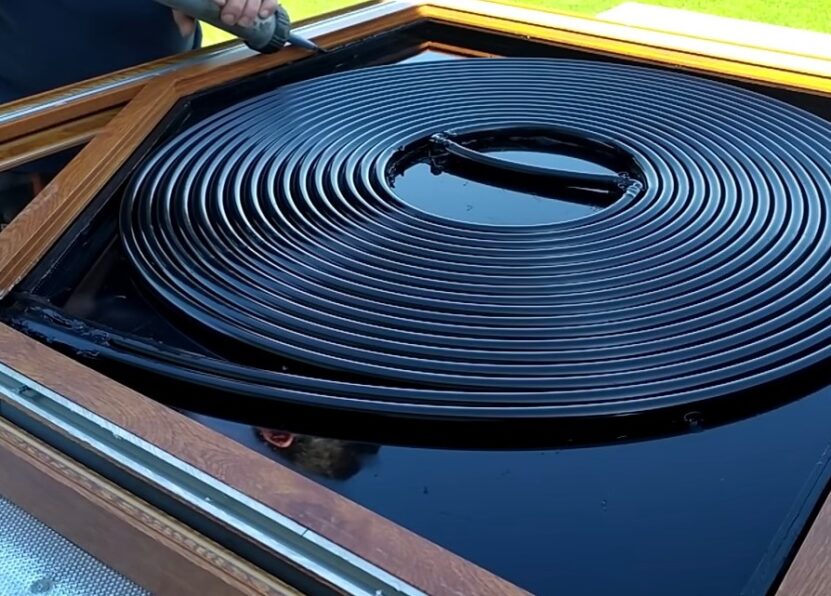
Like all equipment, they require regular maintenance to ensure they run efficiently and last for years. Here’s a guide to help you keep your system in tip-top shape:
Routine maintenance:
- Cleaning of panels: Over time, dust and debris can accumulate on the panels, reducing their efficiency. Regularly cleaning them ensures they capture maximum sunlight.
- Checking for leaks and blockages: Inspect the system for any leaks or blockages that might hinder water flow.
- Inspecting pump and filter performance: Ensure that the pump is working efficiently and the filter is effectively removing debris.
Common issues and troubleshooting tips:
- Inadequate heating: This could be due to dirty panels, a malfunctioning pump, or blockages in the system.
- Pump or circulation problems: Ensure the pump is powerful enough to circulate water through the collectors. You might need to upgrade or supplement your existing pump.
- Water quality concerns: Regularly check and clean the filter to maintain water quality.
FAQ
How much does a solar pool heating system cost?
On average, they range between $3,000 and $4,000 for purchase and installation. However, they offer long-term energy savings and have a lifespan of 15–20 years, making them more durable than gas or heat pump models.
Can solar pool heaters work in all climates?
While they are a no-brainer in hot climates, they can also provide warmth in colder climates. However, the efficiency might vary based on sunlight availability.
Will a solar pool heater extend my swimming season?
Absolutely! With the right setup, you can enjoy warm water even during the cooler months.
Do solar pool heaters require direct sunlight to function?
They work best with direct sunlight but can also utilize diffuse solar radiation, which is ambient sunlight reflected from other objects or filtered through obstructions.
How does a solar pool heater compare to other heating options in terms of efficiency?
Highly efficient, especially in areas with abundant sunlight. Their efficiency can be measured using their thermal performance rating.
Are there any incentives or rebates for installing a solar pool heater?
This varies by region. It’s best to check with local authorities or energy providers for any available incentives.
Can I install a solar pool heater myself, or do I need a professional?
While it’s possible for DIY enthusiasts to install a solar pool heater, it’s recommended to consult with a professional to ensure optimal setup and efficiency.
Are there any maintenance tasks that I can perform on my own?
Basic tasks like cleaning the panels and checking for blockages can be done independently. However, for more technical issues, it’s best to consult a professional.
What is the typical lifespan of a solar pool heating system?
Typically last 15–20 years, making them more durable than many other heating options.
How do I know if my solar pool heater is functioning correctly?
Regularly monitor the water temperature and check the system components for any signs of malfunction or wear.
Conclusion
Embracing solar pool heaters is more than just a nod to modern technology; it’s a commitment to a sustainable future. By harnessing the sun’s abundant energy, not only do we enjoy warm, inviting waters, but we also contribute to a greener planet.
The initial investment is quickly overshadowed by the long-term benefits, both to our pockets and the environment. As we dive into the future, let’s make eco-friendly choices, championing solutions that harmonize with nature. After all, a warm pool is delightful, but a warm pool powered by the sun? That’s progress.

